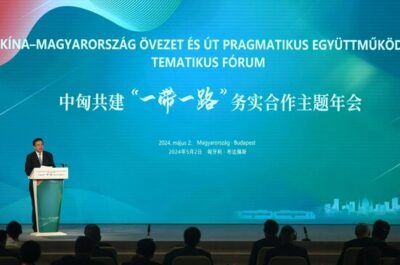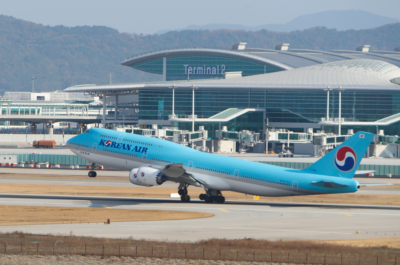Across all marketing disciplines, event marketing ranks second only to direct marketing in perceived return on investment (ROI), according to a…
Across all marketing disciplines, event marketing ranks second only to direct marketing in perceived return on investment (ROI), according to a survey of more than 700 marketing executives across the United States, Europe and Asia Pacific. The findings are part of the second-annual Global Event Trends study, made possible by The George P. Johnson Company and The MPI Foundation.
The final report – a compendium of three regional reports conducted in 2003 and comparative data collected in 2001-2002 – documents the evolution of event marketing relative to its changing role, levels of investments and perceived effectiveness compared to other marketing mix elements. Those surveyed include senior marketing executives from vertical industries including: automotive, technology, healthcare, financial services, consumer, manufacturing and associations.
Return on Investment (ROI) Impacts Spending
Marketing respondents are optimistic regarding event marketing budgets, with 35% indicating anticipated increases and 54% indicating no change to the prior year`s budget. The largest event marketing budget increases will come from companies that diligently measure events and accurately assess ROI.
In terms of perceived ROI, executives report that event marketing (23%) is second only to direct marketing (27%), ranking higher than advertising (21%) and sales promotions (20%) on average across all surveyed geographies. European respondents, in particular, perceived higher ROI for one-to-one marketing efforts such as direct marketing and event marketing over mass marketing tactics such as advertising and sales promotions.
Executives who measure and see strong returns are more likely to increase their investment. In the U.S., for example, among those who perceive positive ROI, 52% indicate an increase of event marketing budgets; in comparison, 32% of all respondents indicate an increase to their event marketing budgets.
Notably, respondents cite different reasons for event marketing budget increases in the Asia Pacific than the U.S. and U.K., which evaluate prior success when assessing budgets. In Asia Pacific, respondents indicated increased brand awareness, expanded product lines and increased sales and market share as primary motivators for increased event marketing expenditures.
Measurement and demonstrable ROI remain a priority in any marketing discipline as budgets continue to be closely scrutinized, said Robert G. Vallee, Jr., chief executive officer of The George P. Johnson Company. As face-to-face interaction with customers becomes more important, events will command a growing percentage of the entire marketing budget.
Among those who measure, the analysis is overwhelmingly done internally (85%) as opposed to an independent third party (15%) or by the agency managing the event (12%).
Increased Role for Event Marketing, Changing Criteria for Success
Globally, a majority of respondents predict an increased importance in the role of event marketing in their organizations, with Asia Pacific (63%) and German (58%) marketers indicating higher importance than in the U.S. (47%) and U.K (46%).
More than just gaining popularity, the success of event marketing is increasingly being evaluated by criteria with sweeping relevance across an organization. The majority of respondents indicated brand preference and brand awareness as the perceived ROI drivers.
Tradeshows are seen as the preferred event marketing tactic, providing the best ROI for marketers, ranking just above conferences and seminars. The largest percentage of event budgets is also allocated to tradeshows and sponsorships, ranking ahead of conferences and seminars.
In contrast with recent trends, trade shows continue to provide value and command larger portions of event budgets, said David Rich, executive director, program strategy/worldwide for GPJ. An increased number of event types being executed signify that marketers are moving toward embracing proprietary events in their event marketing strategies.
Internal Events Growing in Importance
Internal events are also gaining greater prominence in the event arena, with marketers giving internal meetings as high of a priority as external events in perceived future importance. However, the companies surveyed are holding half the number of internal as compared to external events, on average.
At a time when employee productivity is a focus, studies show that companies are using events to further educate and motivate, said Rich. This shift in perception solidifies the notion that the internal audience is gaining importance within organizations.
Building on this research, is the GPJ/Event Marketer Magazine Pulse Research, a quarterly online soft sounding of event marketing professionals. The first quarter Pulse Research in 2004 elicited feedback on key findings from the 2003 Global Event Trends Study in the areas of measurement, ROI, event marketing strategies and budgets.
Responses to the online survey support many of the 2003 Global Event Trends Study findings: 27% of respondents expect their event marketing budget to increase in the first quarter of 2004, while 60% forecast no significant change in their budgets. The top three factors expected to affect event marketing budgets in the same time frame include: budget decreases; ability to prove ROI; and the economy. All respondents reported using some type of measurement in the interest of capturing ROI.
It`s encouraging that more and more marketing executives are realizing there really is no substitute for doing business face-to-face via events, said David A. DuBois, CMP, CAE, executive vice president for the MPI Foundation. Data from Meeting Professionals International (MPI) reveals projected growth in the global meeting and event industry in 2004. Meetings and events mirror the general health of business; as the global economy strengthens this year, so will the use of events as a strategic business tool for all organizations.
Theodore is the Co-Founder and Managing Editor of TravelDailyNews Media Network; his responsibilities include business development and planning for TravelDailyNews long-term opportunities.



















































